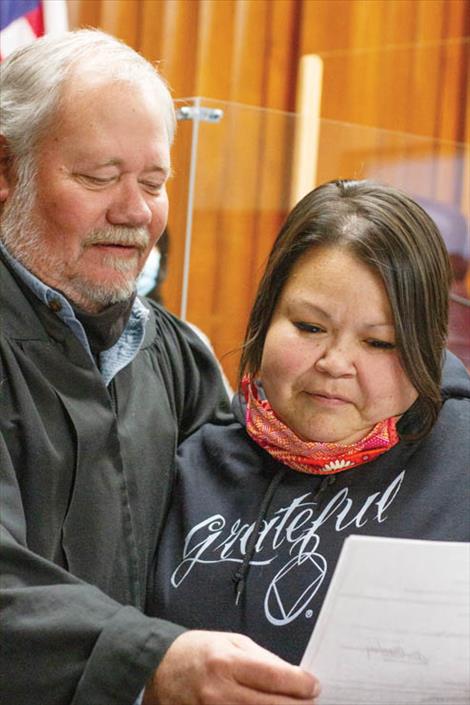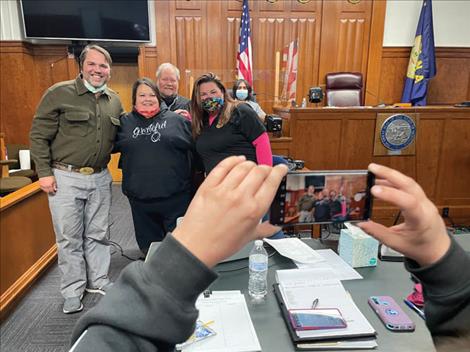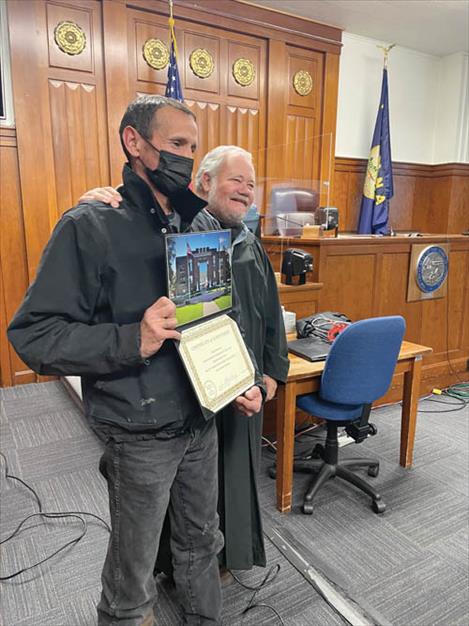Second chances
First criminal record expunged in Lake County Drug Court

Summer Goddard
Judge James Manley reads with Angela Evans the signed document that expunges her criminal record.

Summer Goddard
Attorney James Lapotka, Angela Evans, Judge James Manley and probation officer Katie Wirtz gather for a group photo after Evans’ expungement.

Summer Goddard
Oct. 14 drug court graduate Daniel Beavers poses for a photo with his diploma with Judge James Manley.

Summer Goddard

Summer Goddard

Summer Goddard
Issue Date: 10/20/2021
Last Updated: 10/18/2021 7:24:48 PM |
By
Summer Goddard
Keep Reading!
You’ve reached the limit of 3 free articles - but don’t let that stop you.















